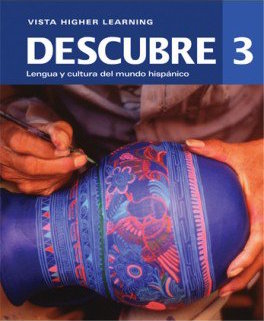
All Solutions
Page 337: Practica y comunicacion
* We use “**haya**” because it is a requirement in order to obtain the job.
* The films are relatively recently released, so “**ha**” is correct.
* To get to know someone well, you have to do it for some time: “**hayas**”.
* The actors learned the script for the scene at the time, so “**han**” would be most appropriate.
* The person asks that first the others have read the news, “**hayan**” would be more correct.
* This person does not think that the other has written a book at any time in the past, so we are gonna use “**hayas**”.
**EXAMPLE:** No creo que ese actor haya aprendido a actuar bien. / *I don’t think that actor has learned to act well.*
**ANSWER:** Creo que ese actor ha aprendido a actuar bien. / *I think that actor has learned to act well.*
* **El corresponsal no cree que los periodistas hayan hablado con el crítico.** / *The correspondent does not believe that the journalists spoke to the critic.*
* **Yo creo que el director les ha dado pocas ordenes a sus actores.** / *I believe that the director has given few orders to his actors.*
* **No estoy seguro de que la mayoría del publico haya leído la noticia.** / *I am not sure that most of the public has read the news.*
* **Seguro que la prensa sensacionalista ha publicado esa noticia.** / *It is not certain that the tabloid press has published the story.*
* **No pienso que ese actor haya sido protagonista de Hombres de Negro 3.** / *I don’t think that actor starred in Men in Black 3.*
|CHART 1 |
|–|
|Dudo que / *I doubt that* |
|Me molesta que / *It bothers me that* |
|Me sorprende que / *I am surprised that* |
|No creo que / *I don’t think that* |
|No es justo que / *It’s not fair that* |
|Quiero que / *I want that* |
|–|
|darme explicaciones / *give me explanations* |
|conseguir el papel / *get the role* |
|tener suficiente experiencia / *have enough experience* |
|trabajar con ese director / *work with that director* |
|darme otra oportunidad / *give me another chance* |
|escoger la mejor actriz / *choose the best actress* |
**1. No es justo que hayas conseguido el papel.** / *It’s not fair that you got the role.*
**2. No creo que hayas tenido suficiente experiencia.** / *I don’t think you’ve had enough experience.*
**4. Me sorprende que hayas trabajado con ese director.** / *I’m surprised you worked with that director.*
**5. Me molestas que no me hayas dado otra oportunidad.** / *It bothers me that you didn’t give me another chance.*

